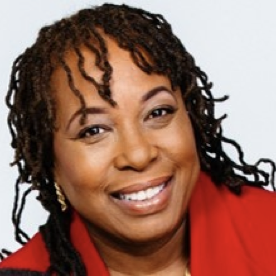
I am more spiritual than I am religious. While I am a Christian from the Baptist tradition, I have been influenced by Phillip Harris’s Jesus Taught It, Too!, and Rabbi Daniel Lapin’s Business Secrets from the Bible. Both embrace scripture as a basis for their thought-proving analysis, one Christian and the other Jewish. Now, don’t get me wrong, the Bible is always my go-to for spiritual connection!
I also walk in the Spirit of God’s law of attraction, or the belief that the universe creates and provides for you that which your thoughts are focused on. Therefore, I feel spiritually led and more focused on my direct relationship vs. more formal means, such as church. While I enjoy attending church service now and then, I prefer walking in nature as I listen to scripture through Bible reading apps, taking in the beauty of what He has created around me and listening for His voice.
The ICJS Justice Leaders Fellowship (JLF) program has illuminated a similar thread in the teachings of Jewish, Christian, and Islamic traditions. I noted that each view the path to equitable economic justice and empowerment as individualized. Yet, their commonality suggests that each citizen is responsible for their part in the universal family, which affects the whole of society.
While the text of many of the teachings made me feel a little off-kilter regarding my goals of attaining personal and financial wealth, I feel this is where discernment plays a big part. Each tradition suggests theirs is the way, and individuals are left to be guided by their inner being when assessing whom they follow in the Spirit. With so many religions, one has to wonder as to which path they are to follow. So, I prefer seeking the meaning in the words of instruction vs. their literal context.
And, if I got the meaning right, I feel comfortable continuing along the chosen path of creating opportunities in underserved communities, focusing on the whole of the community and not just one segment, creating a view for folks to engage as they look to elevate their horizons. For an underserved community to experience equitable economic justice and empowerment, pathways must be created to enable anyone seeking a pathway to attain it. In this capitalistic society, I feel the struggle is between personal financial “benefit” and the God-centered deeds inherent in assisting others along the way.
It’s interesting how each of the traditions deals with human connections, even when getting there may be different. I again call upon the Spirit within where there is a divergence of perspectives to guide me through, appreciating different ideals, yet being mindful of what resonates within me. I love seeing how each faith has a heart for all while seeking obedience to its norms. However, seeking to create economic justice and empowerment where there is a lack is filled with sometimes insurmountable challenges. Everyone “working” on the solution does not always enter the mission with a clean heart.
The challenges are significant, but in the short time I have participated in the JLF program, I have been encouraged by how many people have the heart for change. As these teachings we’ve reviewed for the Jewish, Christian, and Islamic perspectives on economic justice and empowerment get to the same place while traveling different roads, so too is the journey for those of us working to create empowered communities. We may each have a different path to take while our collective efforts are designed to accomplish one goal: uplifting our fellow beings.
Learning how other traditions look at personal responsibility to this elusive equitable economic justice and empowerment does make you wonder why and how there is so much lack. Where did we go off-center, and why has it gone on for so long? With so many traditions that have these same conversations, why aren’t conditions better? Or are we still just talking about it instead of being about it?
 Lorette Farris is COO and Fund Manager at WE.Global, LLC, and a member of the 2021 ICJS Justice Leaders Fellowship.
Lorette Farris is COO and Fund Manager at WE.Global, LLC, and a member of the 2021 ICJS Justice Leaders Fellowship.
Baltimore is part of a national conversation around questions of justice, race, and community. Members of the ICJS Justice Leaders Fellowship consider how Jewish, Christian, and Muslim teachings and practice can contribute to the public conversation about (in)justice. Opinions expressed in this blog are solely the author’s. ICJS welcomes a diversity of opinions and perspectives. We do not seek a single definition of justice between or within traditions.